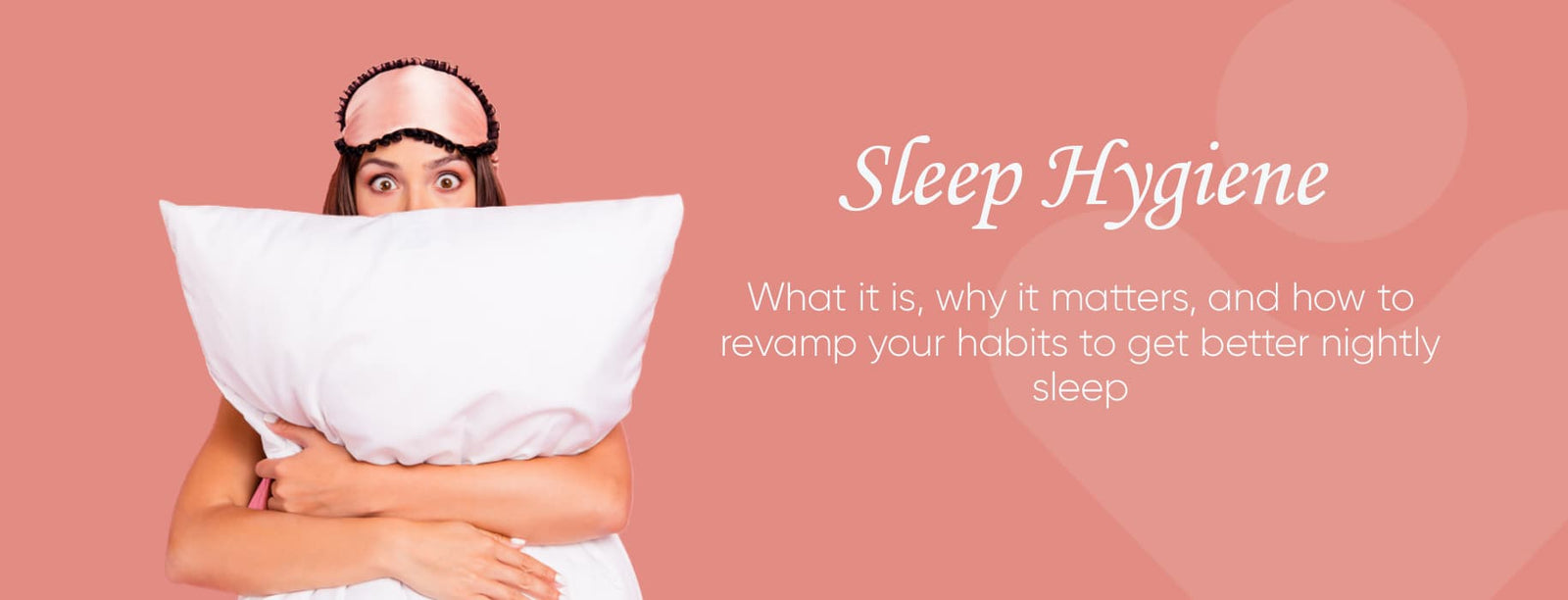Sleep hygiene refers to the habits and practices that contribute to a good night’s sleep. Quality sleep is crucial for your health, and sleep deprivation can lead to poor concentration, memory issues, slower response times, and mood disorders like anxiety. Long-term lack of sleep may increase the risk of serious health problems, including obesity, immune system suppression, and inflammation. Let’s explore how you can improve your sleep hygiene to enjoy better sleep and overall well-being.
Why Is Sleep So Important?
Sleep is essential for the body’s restoration and overall health. Without enough sleep, you may experience:
- Memory Issues: Sleep deprivation affects cognitive functions like memory and concentration.
- Mood Disorders: Anxiety, irritability, and mood swings can be worsened by lack of sleep.
- Health Risks: Chronic sleep deprivation can lead to a higher risk of obesity, heart problems, suppressed immunity, and even certain cancers.
How Sleep Affects Appetite Hormones
Sleep plays a significant role in regulating hormones that control hunger. Chronic lack of sleep increases ghrelin (the hunger hormone) and decreases leptin (the hormone that signals fullness), leading to overeating and potential weight gain.
Tips for Better Sleep Hygiene
Here are some steps to ensure you get a restful night’s sleep:
1. Establish a Regular Sleep Schedule
Try to go to bed and wake up at the same time every day. This helps set your internal clock, making it easier to fall asleep and wake up naturally. Even on weekends, stick to your routine to avoid disrupting your body’s sleep patterns.
2. Wind Down Before Bed
Create a calming pre-bedtime routine. Consider taking a warm bath or shower to relax. Adding Epsom salts and essential oils like lavender can help you unwind. You can also spray your pillow with a calming lavender mist or light a relaxing candle.
3. Avoid Caffeine
Caffeine is a stimulant that can make it difficult to fall asleep. Avoid coffee, tea, energy drinks, and fizzy beverages at least six hours before bedtime. Even some diet drinks can contain caffeine, so read the labels carefully.
4. Skip the Alcohol
Although alcohol can make you drowsy, it reduces the quality of REM sleep, which is crucial for memory and overall brain function. Limit or avoid alcohol consumption, especially before bed, to ensure a more restorative sleep.
5. Include Exercise in Your Daily Routine
Even just 20 minutes of moderate exercise can improve your sleep quality. Physical activity helps reduce stress and fatigue, making it easier to fall asleep and stay asleep longer.
6. Limit Screen Time Before Bed
Avoid screens (phones, tablets, laptops, and TVs) at least an hour before bed. Blue light emitted from screens can interfere with melatonin production, the hormone responsible for sleep. If you must use your phone, consider turning on a blue light filter, which you can schedule to activate around 6 or 7 pm.
7. Create a Comfortable Sleep Environment
Ensure your bedroom is cool, dark, and quiet. Blackout blinds, eye masks, and ear plugs can help create a more sleep-friendly environment, especially for shift workers or those in noisy areas. The ideal room temperature for sleep is around 18°C, so adjust as needed with fans, heaters, or electric blankets.
Supplements for Better Sleep
There are various natural supplements that can aid in promoting relaxation and improving sleep quality:
- Valerian & Hops: These herbal supplements have been shown to increase GABA levels in the brain, a chemical that calms nerve activity. This leads to reduced anxiety, quicker sleep onset, and better overall sleep quality.
- Valerian: Often used to help people fall asleep faster, it can also enhance sleep quality and duration.
- Hops: Commonly paired with valerian, hops improve relaxation and promote a calm state, making it easier to drift off.
Conclusion: Prioritize Sleep for Better Health
Sleep is vital for your mental and physical well-being. By following these sleep hygiene practices, you can improve your sleep quality and overall health. Creating a regular sleep schedule, reducing screen time, staying active, and using natural supplements like valerian and hops can make a significant difference.
At McGorisks Pharmacy, we offer a range of products to help you improve your sleep hygiene and enjoy a restful night. Whether you need supplements, essential oils, or other sleep aids, we’re here to provide expert advice and recommendations to support your sleep journey.
Shop Sleep Health Products:
Visit McGorisks Pharmacy today to explore our selection of sleep aids and supplements. Our friendly staff can help you find the perfect solutions for better sleep.
